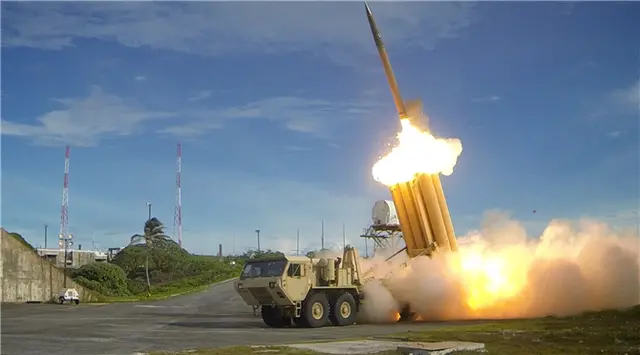South Korea and the United States are expected to launch a joint working group next week to discuss the deployment in the South Korean territory of a sophisticated U. S. missile defense system, Yonhap news agency reported Thursday citing a government source.
The source was quoted as saying that the joint working group would be launched next week due to shortage of time to finish the forming of it within this week.
Preliminary talks between Seoul and Washington have already started to deploy the Terminal High-Altitude Area Defense (THAAD) in South Korea. The talks are reportedly discussing various preparations to launch the working group, including who will represent each side.
The joint working group was originally scheduled to be launch on Tuesday, but it was delayed at the request of the U.S. side, according to the report.
Seoul and Washington jointly announced the start of missile defense talks on Feb. 7 when the Democratic People's Republic of Korea (DPRK) launched a long-range rocket, which the allies see as a prohibited test of ballistic missile technology.
The rocket launch came amid ongoing discussions at the UN Security Council about tougher new sanctions against what Pyongyang claimed was its first H-bomb test on Jan. 6, the fourth of its nuclear detonations.
South Korean Defense Ministry's vice spokesman Nah Seung-Yong told a regularly scheduled press briefing that the U.S. Forces Korea (USFK) command has been preparing with the Seoul ministry to launch the joint working group on behalf of the Pentagon.
After the USFK command completes internal discussion with the U. S. government, the command will make preparatory talks with the Seoul ministry based on the internal conclusion, the vice spokesman said.
The launch of the working group is widely expected to draw anger from neighboring countries, especially China and Russia, as the THAAD's radar covers far beyond the DPRK.
The X-band radar is known to locate missiles as far as 2,000 km, spotting missiles in the territories of China and Russia bordering the DPRK.
China has expressed strong opposition to the THAAD deployment as it impairs China's security interests directly. "No country should impair others' security interests when pursuing its own," Chinese Foreign Ministry spokesperson Hua Chunying said at a daily news briefing Wednesday.
 简体中文
简体中文

